A fair chance for every child
2016-06-28
© UNICEF/UN016264/Gilbertson VII Photo
A fair chance in life begins with a strong, healthy start. In Nigeria, Remi Falayi (centre), with her husband and daughter, 3-month-old Oluwatomini, has adjusted her work schedule so she can eastfeed her child. “It’s not easy. But it’s worth doing,” Ms. Falayi says.
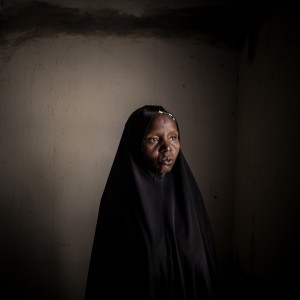
© UNICEF/UN016287/Gilbertson VII Photo
Deprivation in childhood touches every area of children’s lives, compromising their health, safety and education.
Every child is born with the inherent right to a healthy start in life, an education and a safe, secure childhood. Yet, millions of children worldwide are denied their rights — depriving them of the opportunities they need to grow up healthy and strong. Investing in children — especially the most disadvantaged — gives every child a fair chance for a better future.Nigerian Kaltum Mallamgrema, displaced by conflict to the city of Maiduguri, did not receive antenatal care or assistance during any of her eleven pregnancies and cannot afford health care. She lost three of her pregnancies to miscarriages, and her last child was stillborn.
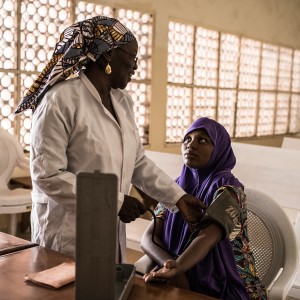
© UNICEF/UN016285/Gilbertson VII Photo
Providing mothers with access to quality health care is the first step in ensuring a fair start for every child. Mother-to-be Hadiza Monsour in Maiduguri receives care from Nurse Aishatu Muhammad at a UNICEF-supported primary health centre that provides free health services in the area.
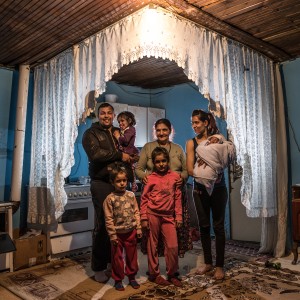
© UNICEF/UN016244/Gilbertson VII Photo
Marginalized communities, like the Roma in Central and Eastern Europe, have a harder time accessing health services. The Arifi family in Serbia, who earn irregular income, live in an abandoned home with no utilities, depend on social assistance and lack full access to welfare benefits.
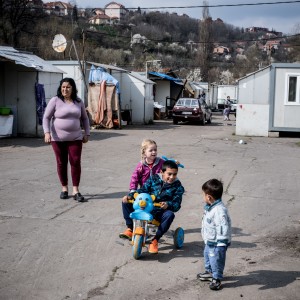
© UNICEF/UN016239/Gilbertson VII Photo
Fortunately, Sonja Selimović and her two young children, playing with a friend (pedalling tricycle) in their settlement outside Belgrade, benefit from Serbia’s Roma Health Mediators programme, which provides services to improve the health and quality of life in Roma communities.
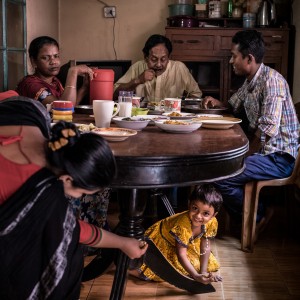
© UNICEF/UN016317/Gilbertson VII Photo
Proper nutrition is important as well for children’s survival, health and development.
In Khulna, Bangladesh, Amena Akhter makes sure that her daughter, Hafsa Khatun (under the table), 4, eats vegetables during the family’s varied and nutritious lunch time meal.

© UNICEF/UN016328/Gilbertson VII Photo
Rexona Begum in Kultoli Village, also in Bangladesh, eating rice and potatoes with her daughters, has learned through a local clinic how to make healthier food choices for her family, but cannot afford to buy the nutritious foods they need, and Sumiya (at right), 5, is malnourished.

© UNICEF/UN016323/Gilbertson VII Photo
With education, advice and training support, including from the local agriculture office and NGOs, Abdul Shahid and his wife Mafura Pervin,
who has diabetes, are growing more nutritious, less starchy foods, as well as more food, in their home garden in a rural village in Bangladesh.
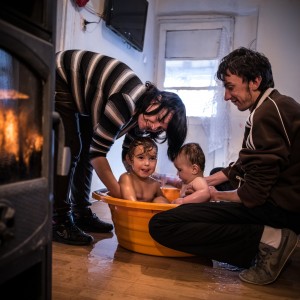
© UNICEF/UN016246/Gilbertson VII Photo
With strong support, barriers blocking children’s chances to thrive can be removed. Djurdjica and Branislav Marković in Serbia,
who have cognitive disabilities, gained access to benefits, medical care, preschool enrolment and other support for their young family through social services.

© UNICEF/UN016337/Gilbertson VII Photo
Education is not only about going to school; learning is what counts.
Rakib Hosain Sabbir, 9, a star cricketer at his primary school in Satkhira Sadar, receives tutoring after school. He would like to go on to secondary school and beyond, perhaps eventually becoming a doctor.

© UNICEF/UN016280/Gilbertson VII Photo
Disadvantaged children and families contend with a range of obstacles in getting the services and support they need.
Mustafa Mala’s family in Nigeria has been displaced to Maiduguri by conflict. None of his school-aged children are in school because he cannot afford the annual fees.

© UNICEF/UN016277/Gilbertson VII Photo
During emergencies, education can help restore a sense of stability and hope for the future.
In the Dalori camp, near Maiduguri, Principal Yafati Sanda (standing at left), established a school serving 8000 internally displaced children.
“If I don’t help [them], who will?” she said.

© UNICEF/UN016256/Gilbertson VII Photo
Good, inclusive education practices can counter deprivations, including those children with disabilities face.
With support from her parents, teachers, and community, Sladjana Ugrica (left), 10, has been mainstreamed in her school in Kolut Village in Serbia since the first grade.

© UNICEF/UN016251/Gilbertson VII Photo
For many children with disabilities, however, the obstacles are many and the opportunities are few.
Aleksandra Sinidoli, 11, a Roma girl also in Serbia, has been waiting nearly 18 months for a chance to go back to school since an injury left her with a physical disability.

© UNICEF/UN016315/Gilbertson VII Photo
For children with access to quality education, possibilities abound. Arefin Hasan, 12, in Bangladesh, who is tutored before and after school, wants to be a scientist and an inventor, and to travel aoad. Many of his peers have dropped out of school to help support their families.

© UNICEF/UN016304/Gilbertson VII Photo
Without educational opportunities, the choices available narrow — especially for girls. Joya Dhali (carrying books), 17, in southern Bangladesh, refused to get married at age 16.
“I want to be independent and do something on my own. Education is the only way to reach my goal,” she said.

© UNICEF/UN016293/Gilbertson VII Photo
And for a child who must forgo school in order to work, even dreaming is beyond reach.
Although tuition is free, Muhammad Modu, 15, in Nigeria –displaced, out of school and scavenging in a dump for items to sell — cannot afford the cost of lunch, a uniform or transportation to school.
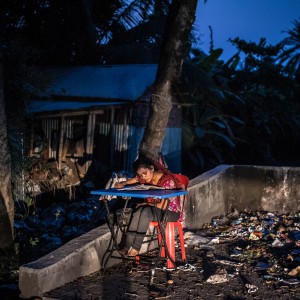
© UNICEF/UN016303/Gilbertson VII Photo
The means to give every child the chance for a better life and a future do exist. A UNICEF-supported conditional cash transfer programme helped Jhuma Akhter, 14, in a family living hand-to-mouth in Bangladesh, stop working and return to school — where she is the top student in her class.









